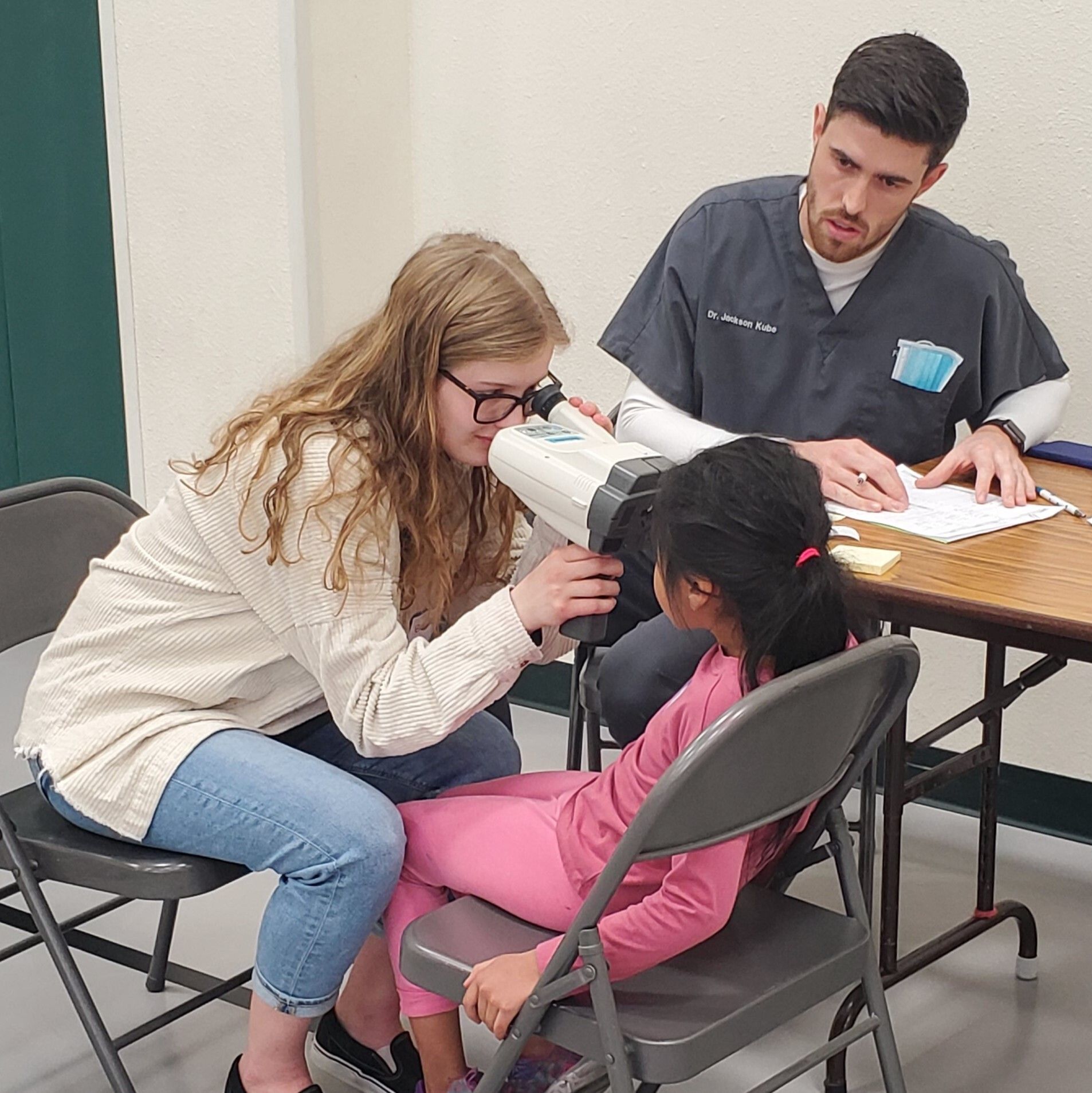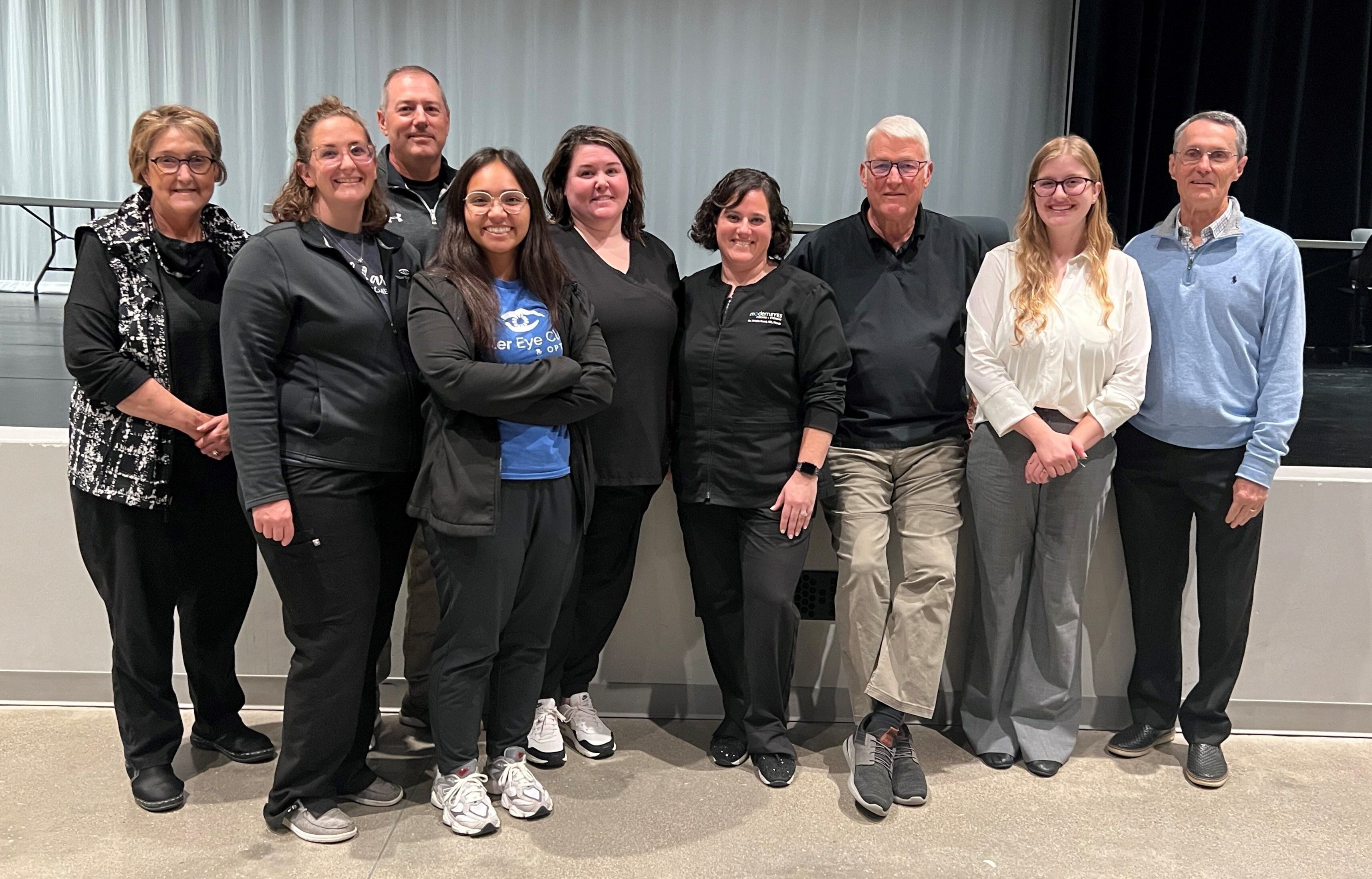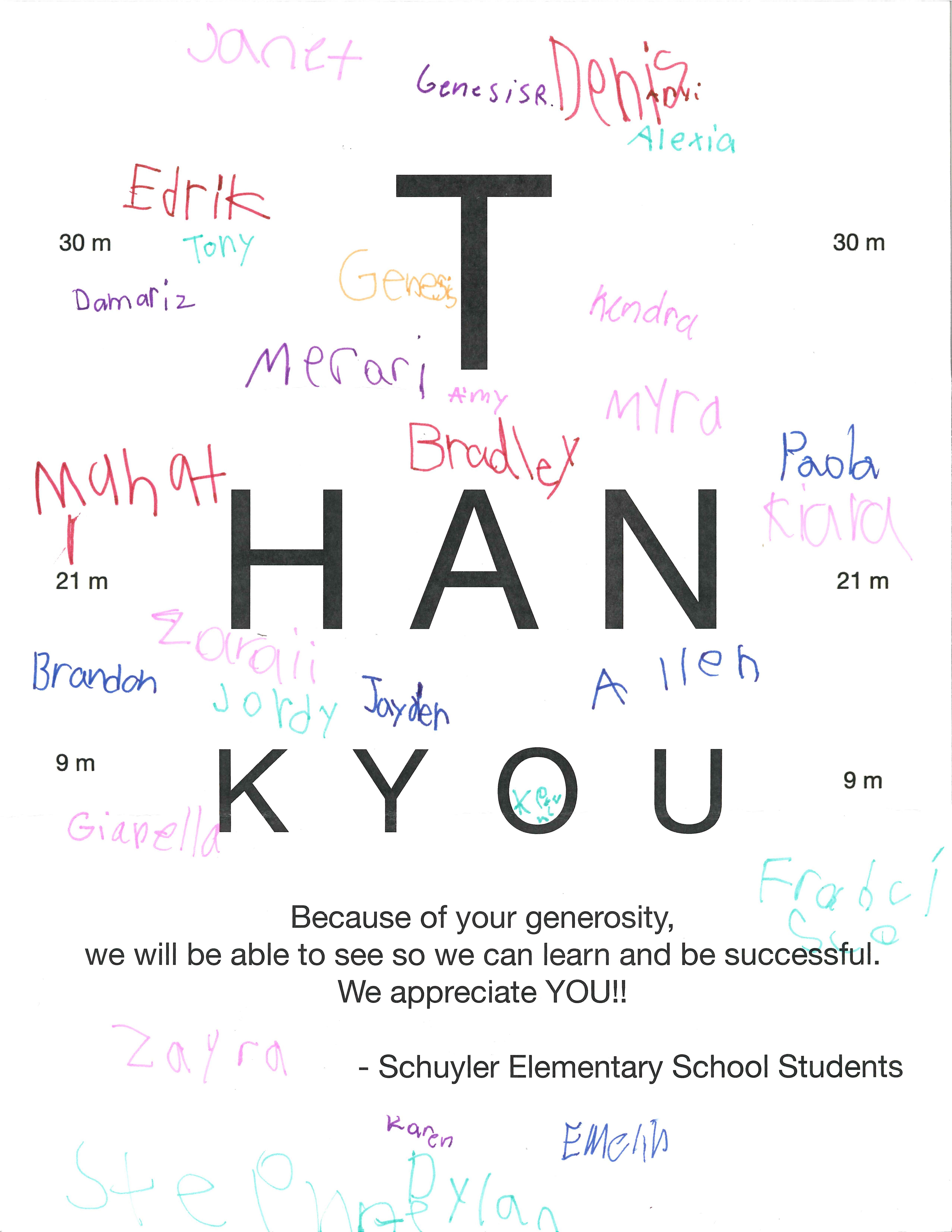The Nebraska Foundation for Children's Vision can help facilitate or coordinate vision clinics at schools. Goals of school vision clinics are to provide comprehensive vision examinations for students identified as having potential vision deficiencies, provide charitable care to underserved students who may otherwise be unable to access vision care services, and obtain data that assesses the degree to which students' academic performance improves by addressing vision needs.
We have options for two types of school clinics. One is a template for on-site, one-day clinics at a school or community facility. The other is for clinics held at local or area optometry practices.
NFCV has outlined Guidelines & Expectations for School Vision Clinics which describe the two options. Resources do not allow for unlimited clinics, so schools or communities interested in arranging a clinic should contact the NFCV to request an Application Form.
Learn About A School Vision Clinic
A Sample School Clinic Process
Beatrice Public Schools conducted state-mandated vision screenings in the fall of 2020. Underserved students in grades 1-4 who failed that screening were identified by school administrators. State mandated reading and math tests were also administered in the fall and those students who were below standards and failed the vision screening were also identified, along with students who were observed by classroom teachers to have a potential vision problem. Parents of over 70 students were contacted. Based on those who did not indicate any connections with an eyecare provider, over 40 students were invited to participate. Parent consent forms were received from 25 students and 24 received eye exams as part of the project. 21 of the 24 qualified for free or reduced lunch.
Exams were conducted by 6 volunteer optometrists at the BPS Administration Building on Feb. 23. Testing included distance and near acuities, tonometry, cover tests, dilated eye health, and refraction. 18 students received an Rx and selected frames on site. A local OD returned to the schools to dispense and fit eyeglasses.
BPS conducted reading and math tests on these students again in the spring and provided data comparing the improvement of the 24 students receiving care from this project to the overall average improvement of students.
“We saw large gains with all students who received glasses in both reading and math. Students were excited about the glasses and took care of them when they were in class. Teachers saw an increased focus from students who received glasses because they were able to see everything they had been missing before.”
— Beatrice Public Schools Assistant Superintendent
The Results
Data provided by BPS showed that reading scores of the 24 students receiving care through this project improved by an average of 17.9 points from prior testing, compared to average increases of approximately 4 points for the school population overall. Math scores improved by an average of 15.8 points compared to an average increase of approximately 6 points for the overall school population.
The BPS Assistant Superintendent commented: “We saw large gains with all students who received glasses in both reading and math. Students were excited about the glasses and took care of them when they were in class. Teachers saw an increased focus from students who received glasses because they were able to see everything they had been missing before.”
School faculty and administrators, and the local school board, are more aware of the correlation between vision and learning. Dramatic improvement in reading and math scores underscored the impact that vision can have.
Teachers were educated on warning signs of vision problems and are now more acutely aware of how to identify children with potential need for follow up care so more children in the future can be helped.



